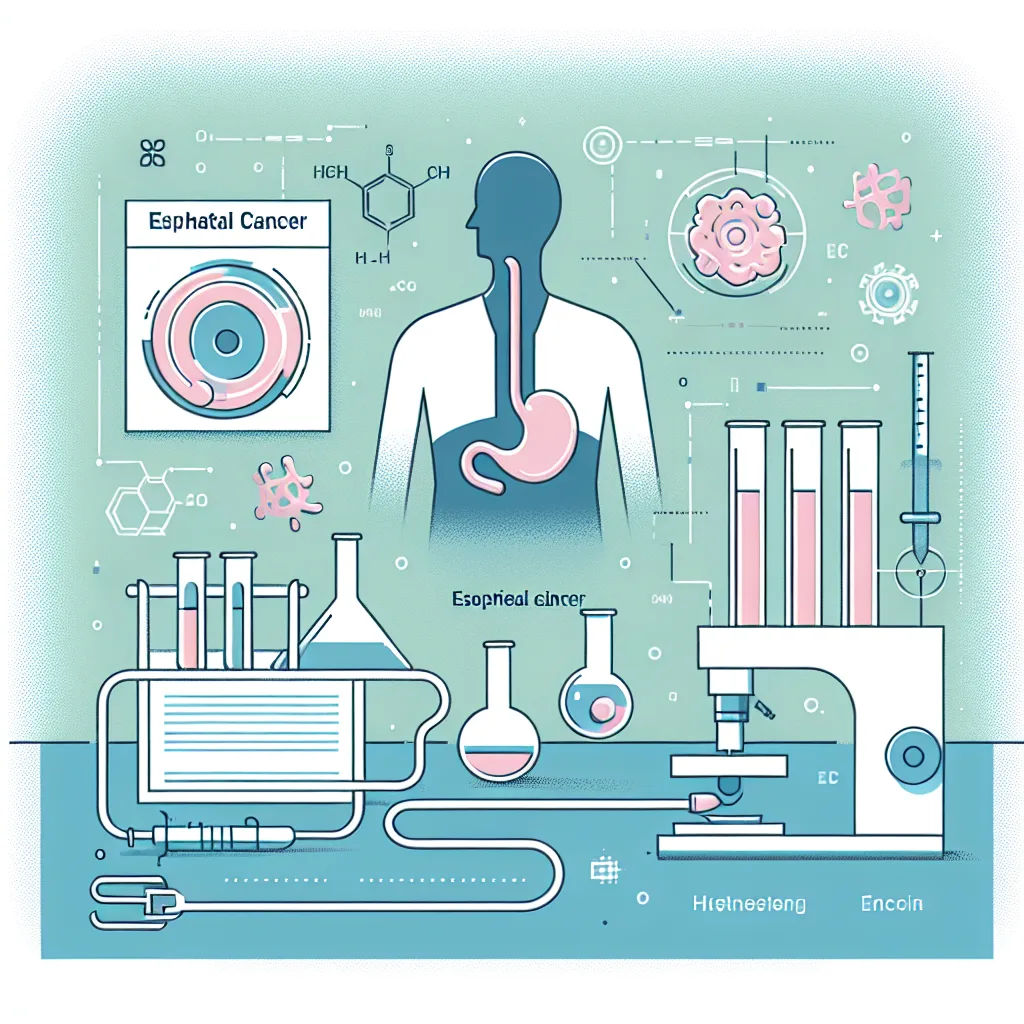Esophageal Cancer: Current Treatments and Future Progress
Esophageal cancer is a malignant tumor that originates in the esophagus, the muscular tube that carries food and liquids from the throat to the stomach. It is a relatively uncommon form of cancer but has a high mortality rate. In this article, we will discuss the epidemiology, diagnosis, and treatment options for esophageal cancer.
Epidemiology
Esophageal cancer affects people worldwide, with varying rates depending on geographic location and lifestyle factors. It is more common in men than in women and typically occurs in individuals over the age of 45. The risk factors for esophageal cancer include smoking, heavy alcohol consumption, obesity, gastroesophageal reflux disease (GERD), and a diet low in fruits and vegetables.
Diagnosis
Diagnosing esophageal cancer typically involves a combination of medical history review, physical examination, imaging tests, and biopsy. Common imaging tests include endoscopy, which allows for visual examination of the esophagus, and imaging scans such as CT scans, PET scans, and barium swallow studies. Biopsy samples obtained during endoscopy or surgery are examined under a microscope to confirm the presence of cancer cells.
Treatment Options
Treatment for esophageal cancer depends on various factors, including the stage of the cancer, overall health of the patient, and individual preferences. The main treatment modalities for esophageal cancer include surgery, radiation therapy, and chemotherapy.
1. Surgery: Surgery for esophageal cancer involves the removal of the tumor and surrounding tissues. This can be done through different techniques, including esophagectomy (removal of a portion of the esophagus) or total esophagectomy (removal of the entire esophagus), followed by reconstruction of the remaining digestive tract. Surgical intervention is most effective when the cancer is detected in its early stages and has not spread to nearby lymph nodes or distant organs.
2. Radiation therapy: Radiation therapy uses high-energy X-rays or other types of radiation to kill cancer cells or prevent their growth. It can be given externally, where a machine directs radiation beams at the cancer site, or internally through the placement of radioactive materials near the tumor. Radiation therapy may be used before surgery to shrink the tumor or after surgery to destroy any remaining cancer cells.
3. Chemotherapy: Chemotherapy uses drugs to kill cancer cells throughout the body. It can be administered orally or intravenously and may be used in combination with surgery or radiation therapy. Chemotherapy drugs work by targeting rapidly dividing cells, which include cancer cells. While chemotherapy can cause side effects, such as hair loss and weakened immune system, it can also be effective in reducing the size of tumors and preventing the spread of cancer.
Additionally, targeted therapy and immunotherapy are emerging treatment approaches being explored in clinical trials for esophageal cancer. These therapies aim to selectively target cancer cells or boost the body's immune system to fight against cancer. While not yet standard treatments, they show promise in improving outcomes for patients with advanced esophageal cancer.
Promising Future Drugs in Clinical Trials
Esophageal cancer trials have seen the development of several promising drugs in recent years. These drugs are being tested in late-stage clinical trials, bringing hope for improved treatment outcomes. Some of these potential future drugs include:
- Drug A: This targeted therapy aims to inhibit the specific genetic mutation found in a subset of esophageal cancer patients. Early studies have shown encouraging results in shrinking tumors and prolonging survival.
- Drug B: An immunotherapy drug that activates the body's immune system to recognize and attack cancer cells has shown promising responses in a subset of patients with advanced esophageal cancer.
- Drug C: This novel drug targets a specific protein in cancer cells, disrupting their growth and survival. Early trial results suggest it may be effective in preventing cancer recurrence after surgery or radiation therapy.
While these drugs are still undergoing rigorous testing, they hold great potential in revolutionizing the treatment landscape for esophageal cancer. Clinical trials play a vital role in evaluating the safety and efficacy of these new drugs before they can be approved for widespread use.
In conclusion, the treatment options for esophageal cancer currently include surgery, radiation therapy, and chemotherapy. However, ongoing clinical trials are exploring exciting new drugs that could potentially improve outcomes for patients. With advancements in targeted therapy and immunotherapy, future treatments for esophageal cancer hold great promise. It is crucial for patients to work closely with their healthcare team to discuss available treatment options and participate in clinical trials when appropriate.
